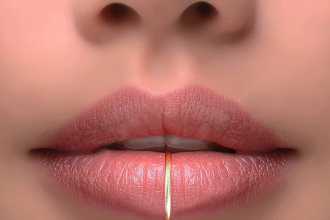In pursuit of glowing skin, we do tons of things every day. While some can be seen trying countless serums and creams, having a night-time skin routine, and booking facials every month, others just chug water religiously, believing that they’ll have that shiny, bright, and glowing skin one day. However, we forget there is one thing that quickly fixes our skin problems, i.e., giving up alcohol. Drinking regularly or being addicted to alcohol can take a serious toll on our skin. And we don’t want to be a buzzkill by saying that because we’ve long known that alcohol is no health elixir and can impact us seriously. It can be proved by a simple example tell us, have you ever noticed your racoon eyes the next morning after a night out full of alcohol? We are sure you did. These extreme symptoms of alcoholism are hard to ignore. While some will say, it is just the side effect of a hangover, our simple, sustained drinking can have an unexpected impact on our complexion in particular. So, what are these harmful effects of alcohol on our skin? Keep reading this article to know the top six.
1. Dehydration
While it may seem illogical, alcohol does dehydrate the body. It happens when the body metabolises the alcohol, and it releases a byproduct called acetaldehyde, which is toxic to body tissues and skin. Acetaldehyde also makes the skin lose all its moisture and feel rough and desert-dry the morning after drinking alcohol. In addition, dehydrated skin leads to inflammation, acne and loss of its resilience, firmness, and elasticity.
2. Hindered Cellular Turnover
Alcohol affects the body in multiple ways, but sleep ranks amongst the most vulnerable. When alcohol interferes with the sleep cycle and compromises the body’s cellular rejuvenation cycle and key cognitive functions. The cellular rejuvenation cycle can be defined by the body’s healing ability from all ailments and regenerating its cells. As a result, the skin looks more dull and rough in texture.
3. Sullen, Puffy Eyes
You can try anything to hide your binge drinking last night, but your eyes often give your hangover away to the public. Because alcohol is a dehydrating liquid, it eliminates the skin’s firmness, and the fat usually deposits under the eyes. As a result, they sink, and the thin skin starts showcasing the blood vessels, resulting in dark racoon circles.
4. Hives
Hives are red, itchy skin bumps that might show up when your body cannot break down any more alcohol due to intolerance. Hives can affect any body part or pop up all over, depending on the severity of your drinking habits. Any ingredient in alcohol to which you are allergic can also result in hives. Also, they last a few minutes to a few days and can be suppressed by treating them with cool compresses and over-the-counter antihistamines.
5. Psoriasis
Binge drinking can easily trigger psoriasis, a condition where skin cells build up and result in dry, itchy patches. When your skin retaliates, continuing drinking can worsen the outbreak, especially in men. Also, psoriasis treatment methods don’t support alcohol. It may make it harder for medications to do their job and could be dangerous when taken with alcohol.
6. Rosacea
Rosacea is a skin condition where your face, especially the cheeks, nose, chin, and forehead, turns red. And it triggers under the influence of alcohol. So, if you notice your face flushing red when you drink, you may have some degree of rosacea. In addition, if you don’t have rosacea before, there are chances that alcohol might cause it.
How To Minimise These Harmful Effects of Alcohol on Skin?
Aside from the moderation rule, other ways can help mitigate the symptoms of alcoholism or the superficial strain while drinking. For example, keep a glass of alcohol and water together. Meaning you have to chase one with the other. Drinking plenty of water can minimise the harmful effects on the skin by hydrating it. Another notion that can help is eating full meals before or while drinking. Doing so will deter the side effects by passing a significant amount of alcohol through the gastrointestinal system along with the food, ensuring the metabolism.
While these remedies ensure that the side effects aren’t as potent, giving up alcohol entirely can do wonders. People addicted to alcohol can seek treatment help from alcohol rehab in UK to stay sober and say bye to all the associated health problems. Though alcohol addiction doesn’t have a permanent solution or treatment, rehabs can help manage or establish a healthy balance with alcohol. They can also help you identify the trigger points and react accordingly to avoid alcohol.














